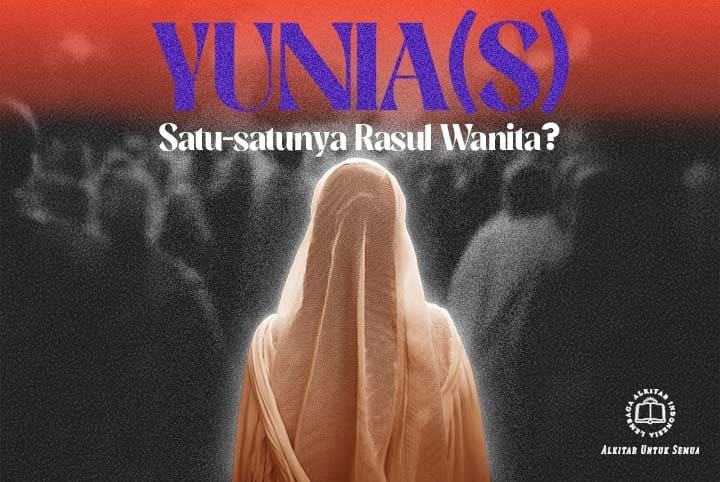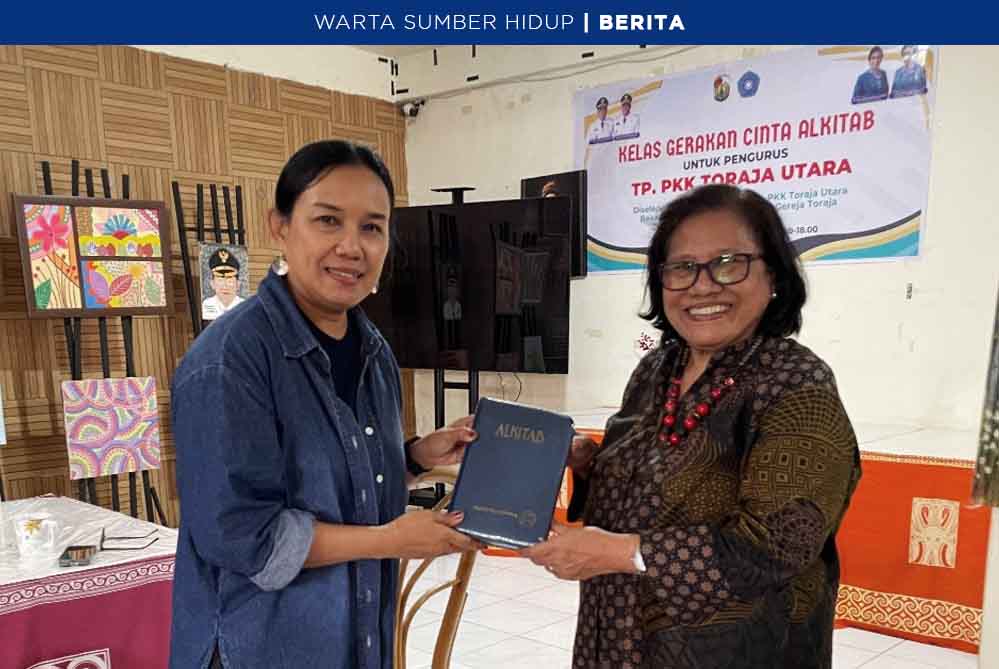But seek first the kingdom of God and His righteousness, and all these things shall be added to you. This is apparently our task in life. But we are looking for something else, and apparently not finding it. From that night Nekhlyudov began a new life altogether. (Resurrection, p. 566)
This concludes the novel Awakening (1899) by the great Russian writer Lev Nikolayevich Tolstoy or Leo Tolstoy. Since his conversion, Tolstoy has been inspired by the teachings of Jesus and often quotes Gospel verses in his writings and novels.
His two other novels War and Peace (War and Peace, 1869) and Anna Karenina (1877) are considered two masterpieces of world literature. Tolstoy is regarded as one of the world's greatest authors not only because of his captivating writing skills, but because he wrote to delve into the human soul and show the way to truth and a meaningful life. He was a combination of artist, philosopher, prophet and reformer, who made literature not just entertainment, but a mirror for the soul and a light for the heart. “Art is not a handicraft, it is the transmission of feeling the artist has experienced,so wrote Leo Tolstoy.
Childhood and Adolescence
Tolstoy was born on September 9, 1828 into a noble Russian family. His father was Nikolai Ilyich Tolstoy and his mother Maria Nikolayevma Volkonskaya. In those days a nobleman had more privileges than an ordinary citizen. Tolstoy lived in a large homestead with extensive land consisting of forests and farmland. The homestead and surrounding land was named Yasnaya Polyana (Bright Forest).
Tolstoy was only two years old when his mother died. Seven years later his father died. Then he was taken in by his grandmother, but after only a year, she died. Since then, he was raised by his aunts. She did not lack love, but without her mother, her life felt empty. She wrote, "I'm trying to think about my mom, but I can't. It's sad, I can't picture her. It's sad that I can't imagine my own mother's face.
In another passage he remembers his mother as gentle and spiritual, although his memories are vague. In his diary he wrote, "I don't remember my mother's voice, but I am sure she loved me sincerely. The loss remains in my heart like a dark hole that cannot be patched.
Tolstoy was very intelligent, but he was not at home in class. He wrote, "The entire two hours' worth of material taught by the teacher I could devour in ten minutes if I read the book myself." By his teens, he was already reading philosophy books by French philosopher Jean Jacques Rousseau.
Although Tolstoy preferred to study alone, he entered Kazan University in 1844. He studied law, but was more interested in foreign languages and literature. Tolstoy was not very fond of formal education. He considered the teaching system of the time to be out of touch with the essence and meaning of life.
In a letter to his brother he wrote, "I came to seek knowledge, but instead I was presented with memorization and routine. I want to understand life, not just memorize the names of Roman laws.
He left the university without completing his degree, and returned to Yasnaya Polyana. There he began to compile personal notes on life, morals, and the desire to be better.
His early novels, “Chilhood”, ”Boyhood”, and ”Youth” are autobiographical. Through these works of his youth we can see his inner struggle as a young man: between worldly desires and spiritual longings, between the courage of nobility and the humility of a true disciple of Christ.
On one of his notes Tolstoy wrote:
“Today I got up at noon. I ate too much. I talked too much. I did not read the Bible. I helped no one. Tomorrow I have to live better.
This tendency toward self-reflection would later shape the distinctive style of Tolstoy's writings: frank, naked, ethically questioning narratives.
Despite his inner thirst for a life of purity and virtue, the young Tolstoy once went with the flow in the lifestyle of the Russian aristocracy: parties, alcohol, gambling and love affairs. "I fell into a life of sinful drinking, gambling and relationships with women just to fill the emptiness of my heart," he wrote.
While living in Moscow and St. Petersburg, Tolstoy mingled with young aristocrats. He used to gamble and often lost large sums. To repay his gambling debts he sold valuables and rented out his properties. However, every time he was down, there was a spirit to live a cleaner and more meaningful life.
In an 1855 journal entry, he wrote another regret:
“I have tasted everything, pleasure, sin and honor. But they have not saved me from emptiness. I seek something eternal.
Despite experiencing various inner conflicts, Tolstoy believed that there was a hand of God shaping him through various life experiences. He wrote:
“I am not like those who know exactly who they are from childhood. I am clay that is constantly being molded by invisible hands: loss, love, sin, and regret.
Engaged as a military volunteer
In 1851, Tolstoy enlisted in the volunteer army and joined his brother as an army officer in Kauskasus. He hoped that seclusion from the city would help him live a cleaner life. As a military volunteer, Tolstoy began to record his observations of military life, local society and death.
These experiences he later poured into the stories “The Cossacks” (1852) and “Sevastopol Sketches” (1855–56), written while he was a soldier in the Crimean War. On the front lines of battle, he saw first-hand the human suffering and absurdity of war. He noted:
“We kill because we are ordered to. We die for words we don't even understand. This is the madness of man.
Despite his youth, Tolstoy's writing style reflects moral depth and keen observation. He not only depicts war as the setting of the story, but also as a symbol of the inner conflict between truth and power.
His writings began to gain recognition and acclaim. But despite this success, Tolstoy felt increasingly alienated from his true self. He began to develop the view that literature should have moral values and humanitarian goals.
“I write not for praise, but to convey the truth I find…Even if it is not perfect, I will continue to seek it.”
Married and Experienced Repentance
At the age of 34, Tolstoy married Sofya Bers, his 18-year-old secretary. Sofya was the daughter of a doctor from the nobility. Tolstoy and Sofya had 13 children.
Despite his success as a writer at a young age, Tolstoy felt his life was empty. He once wrote in his private notes that after reaching the pinnacle of fame with his masterpieces "War and Peace" (1869) and "Anna Karenina" (1877), he experienced an existential crisis. "What is all this for? Why do I live? Why do I write?" he asked in an honest reflection. Fame and fortune could not satiate his soul's hunger for meaning.
This is where the turning point occurred. Tolstoy began to reread the Gospels "not as a religious ritual, but as a search for true life."
He was deeply moved by the Sermon on the Mount. He was deeply moved by the Sermon on the Mount in the Gospel of Matthew, particularly the words of Jesus: "Love your enemies"; "Do not repay evil for evil." For him, this was the essence of Christ's teaching; a teaching of radical love, non-violence, unlimited forgiveness, and rejection of all forms of domination by power.
Tolstoy wrote:
“ I found that my faith in Christ was only true when I followed him … not as a religious master, but as a Living Teacher.”
After his spiritual conversion, Tolstoy abandoned the aristocratic lifestyle. He dressed simply, worked the fields with peasants, chose to be a vegetarian, and refused to own excess property. He also strongly criticized the Russian Orthodox Church, which he said had deviated from the true teachings of Jesus. He said the church leadership has been silent about the injustices in society. He rejected dogma, ritualism, and even the church's participation in justifying war and power. Tolstoy's criticisms angered the Orthodox Church. What offended the church leadership even more was Tolstoy's suggestion that believers relate directly to God, heart to heart, without having to go through the intermediary of the church.
The church did not like Tolstoy's books and officially excommunicated him from the church. He was declared a heretical teacher.
Tolstoy also criticized the policies of the Russian government. As part of his conversion, Tolstoy rejected violence in any form. He opposed capital punishment, warfare and conscription. He firmly stated that violence was a denial of the teachings of Christ. The government also actually disliked Tolstoy, but hesitated to arrest him because of his status as an aristocrat.
Tolstoy's exclusion from the Church ultimately only undermined the authority of the Synod itself and boosted Tolstoy's popularity. Tolstoy's popularity grew and grew, even abroad, leading to the parable that there were two kings in Russia, one in St. Petersburg, the capital, in the Zimnyii Palace, and the other in Yasnaya Polyana, near the town of Tula. This is the land that belongs to Leo Tolstoy.
Tolstoy's admirers came from many countries. Letters from readers came from all over the world, including from Mahatma Gandhi. Gandhi was then a lawyer in South Africa and would later become the Founding Father of the Indian Nation. Gandhi said Tolstoy's book The Kingdom is Within You changed his life and gave him the conviction to fight for the truth peacefully. Gandhi continued to correspond with Tolstoy and learned much about the Gospel from Tolstoy. Inspired by Tolstoy, Gandhi applied the principle of non-violence or ahimsa in the Indian independence revolution.
Chose a Simple Life
In his later years, Tolstoy renounced the rights to his works. He refused royalties and asked that his works become public property. He founded schools for peasants, wrote books for children, and continued to write letters of moral advice to anyone who requested them. He wanted his life to be a mirror of the teachings he believed in.
He says in The Kingdom is Within You, "The church says: I belong to Christ. But Christ says: I belong to those who are poor, hungry, and thirsty for righteousness.
The kingdom of God for Tolstoy is neither a physical place, nor an institution. It is an inner kingdom, where the human heart submits to love, honesty and compassion.
But seek first the kingdom of God and his righteousness, and all these things shall be added to you. (Matthew 6:33). This verse became a kind of new life inspiration for Tolstoy. He believed that world change does not start from political revolution, but from the transformation of the inner man.
In obedience to Christ, Tolstoy distributed his vast estate to the poor peasants. He renounced all his privileges as a nobleman, and lived very simply as a farmer and cobbler. All the while he continued to write.
Watching Tolstoy's eccentric behavior, his wife was often upset and angry. She thought Tolstoy was crazy. One day Tolstoy could no longer stand her nagging. Then in the freezing cold snow he quietly left home and took a train. On the way the 82-year-old hunchbacked grandfather developed angina, fell ill and breathed his last at the small station of Astapovo. His coffin was carried to its final resting place in Yasnaya Polyana by tens of thousands of people from all corners who paid their last respects to the literary great, who was buried without any ecclesiastical rites. He was buried in the middle of the forest, under a shady tree, his favorite place since childhood. Tolstoy died peacefully, like someone who has come a long way and is finally home.
Not many churches know and appreciate Leo Tolstoy. He is an example of how God can work through voices outside the institution of the church to remind the world of Christ's liberating message. Leo Tolstoy gives us an example of the honest spiritual struggle of a man who seriously sought the Kingdom of God and its truth, and invited the world to live according to the Gospel.
In a world ruled by violence, oppression and greed, Tolstoy believed there was another way. He wrote: "The way to the Kingdom of God is not the way of worldly victories, but the way of humility, forgiveness and unrepentant love." Tolstoy will always be remembered not only as a preacher of Christ's teachings, but as His servant who lived the Master's teachings every day.
























